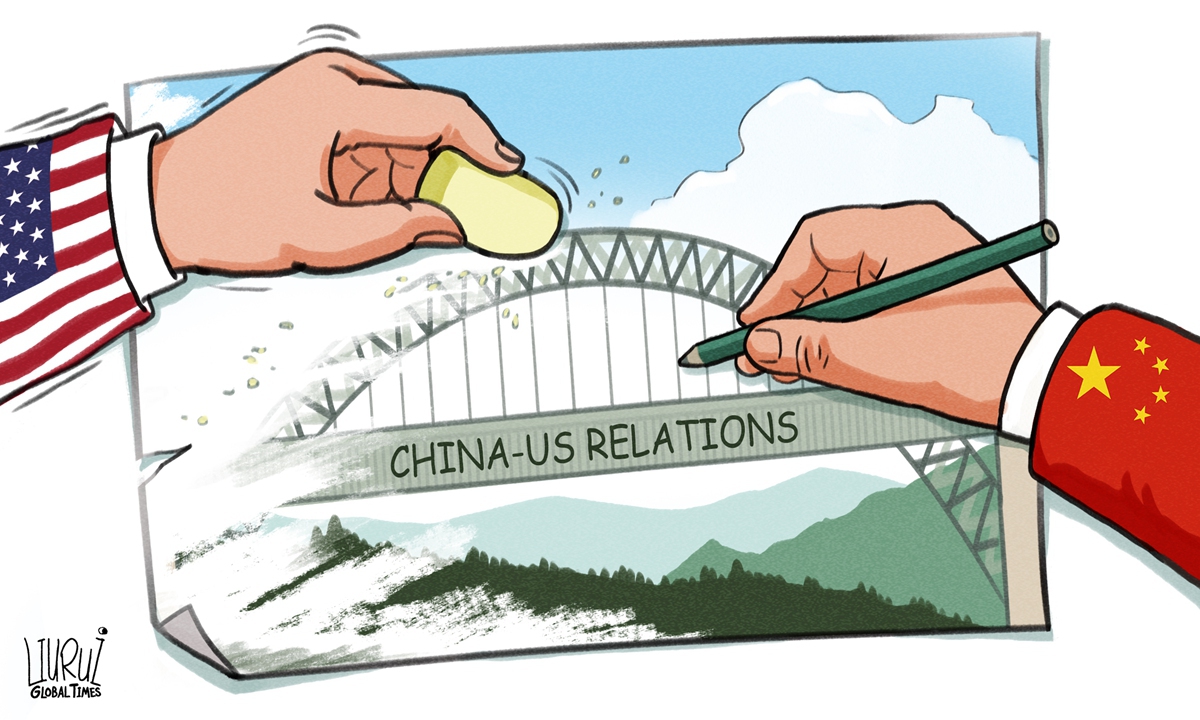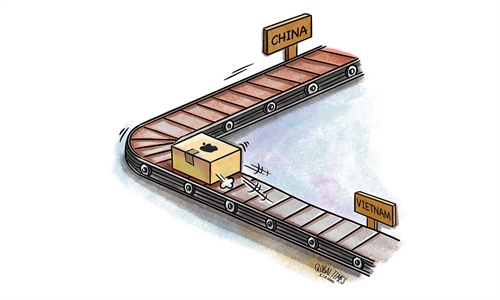US lawmakers’ coercion against Apple an ugly political stunt to boost own political profile at cost of US firms’ loss

China-US relationship. Illustration: Liu Rui/Global Times
While Apple's new iPhone 14 series have captured the imagination of the Chinese public with orders for the new products piling up till November, showcasing the role that the Chinese market continues to play in the company's business and supply chain, a handful of US politicians reportedly ramped up pressure on the company, claiming that the company will face intense scrutiny from US Congress if Apple procures memory chips from a Chinese firm for the next iPhone.
The coercion made by these politicians will backfire on the US economy and companies and create an adverse impact on the California firm's supply chain integrity and sustainability.
Marco Rubio, Republican vice-chair of the Senate intelligence committee, and Michael McCaul, the highest ranking Republican on the House overseas affairs committee, mentioned they had been alarmed by a media report that Apple would add China's Yangtze Memory Technologies Co (YMTC) to its checklist of suppliers for Nand flash reminiscence chips which can be used to retailer information on smartphones, the Financial Times reported on Friday. "If it [Apple] moves forward, it will be subject to scrutiny like it has never seen from the federal government," Rubio told the Financial Times.
Rubio's remarks over Apple are an ugly political stunt aimed at accumulating political capital and building his own anti-China hawkish image. During Rubio's geopolitical game, the interests of US companies have always been sacrificed, with the excuse of national security. Apple is neither the first one being coerced, and unlikely to be the last one that likely serves as an economic sacrifice of Rubio's geopolitical game.
Apple relies heavily on a system of suppliers, factories, and assemblers in China, which allows the California firm to gain a huge competitive advantage in making its products. According to Forbes, as of 2021, 51 Chinese companies are supplying components to Apple. Chinese mainland has surpassed China's Taiwan region as Apple's largest supplier.
Apple has attempted to accelerate diversification of its supply chain by having more Chinese producers involved in its industry chain, in a bid to gain an edge in production while fending off the risks of being too-much reliance on any singular supplier such as Samsung.
Third-party data shows that more than a decade ago, Chinese suppliers only contributed 3.6 percent of the value of iPhones, today, the proportion of Chinese suppliers' contribution to the value of iPhones has increased significantly, at more than 25 percent, according to a study by Yuqing Xing, an economics professor at the National Graduate Institute for Policy Studies in Tokyo, media reported.
US lawmakers' warning against Apple will likely disrupt the company's supply chain, and if it becomes reality, supply chain chaos will seriously hamper the competitiveness and profit-earning ability of domestic manufacturers.
In a response to the Financial Times, Apple said it didn't use YMTC chips in any merchandise, however mentioned it was "evaluating sourcing from YMTC for Nand chips to be used in some iPhones sold in China." The California firm has every right to choose its own suppliers based on business principle. This process should not be interfered with pressure from politicians in Washington.
Rubio's warning against Apple was ridiculous and totally against the spirit of the law always touted by US politicians, including Rubio himself. They should stop using national security excuse to abuse state power to suppress US companies doing business in China.
Apple should not be manipulated by US politicians like Rubio. The California firm can feel free to work with suppliers in China. Involving itself into political games will not be a wise choice for Apple, which has long seen China as an important oversea market.
The authors are reporters with the Global Times. bizopinion@globaltimes.com.cn

